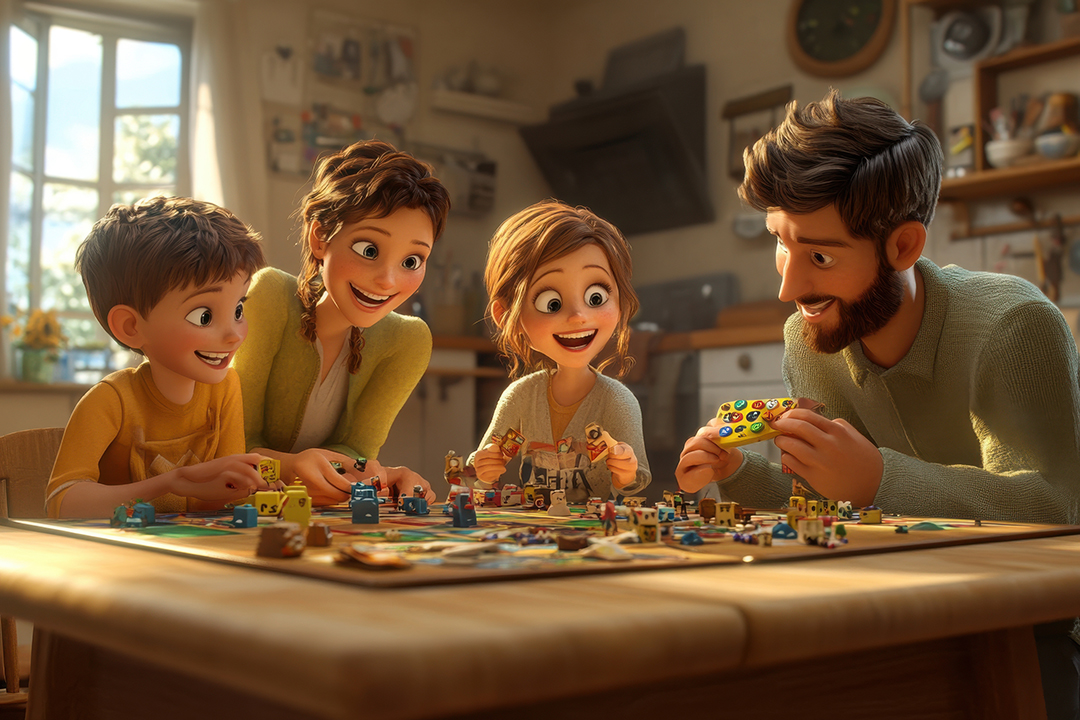Focus and discipline are among the most important skills that form the foundation of academic success. In the early years of school, a child’s mind is still developing, and play is one of the best ways to teach these skills. This article introduces ten educational games that require only simple materials and are both fun and effective in improving children’s concentration, accuracy, and discipline.
Why Is Teaching Focus and Discipline Through Play Effective?
Research shows that children concentrate two to three times more during play compared to traditional instruction, because play engages both the mind and emotions. During games, children have intrinsic motivation to succeed, follow rules, and take responsibility for their actions.
Key benefits include:
-
Improved accuracy and selective attention
-
Learning turn-taking and rule-following
-
Increased mental endurance for longer tasks
-
Reduced anxiety and greater interest in learning
1. “Learn and Tell” Game
The teacher or parent shows several words or pictures, then covers them. The child must recall what they saw.
Goal: Strengthening visual memory and mental focus.
2. “Find the Sound”
Several objects (coin, pencil, keys) are placed behind a curtain. A sound is made with one object, and the child must guess which one it was.
Goal: Improving auditory attention and detail recognition.
3. “Chain Commands”
The teacher gives several commands in sequence (e.g., “Stand up, clap, turn around, sit down”), and students must follow them in order. The number of commands increases in each round.
Goal: Strengthening working memory and auditory discipline.
4. “Red Light, Green Light”
When the teacher says “Green light,” children move; when they say “Red light,” they must freeze. Mistakes lead to temporary elimination.
Goal: Teaching self-control and behavioral discipline.
5. “Find Who’s Missing”
One student leaves the classroom, and others must guess who is missing by paying attention to the group.
Goal: Building collective focus and visual observation.
6. “Group Puzzle”
Children complete a puzzle together, with each child responsible for certain pieces and placing them only in their turn.
Goal: Increasing discipline, patience, and teamwork.
7. “Fast Repetition”
The teacher says a short sentence, and the child must repeat it exactly. Sentences become longer and more complex with each round.
Goal: Strengthening auditory concentration and attention to detail.
8. “Rule-Based Drawing”
The teacher gives specific instructions: “Draw the sun only when I say!” or “If I say green, only color the tree.”
Goal: Teaching accuracy, active listening, and rule-following.
9. “Spot the Five Differences”
Children receive two similar pictures with slight differences and must identify them.
Goal: Enhancing visual attention and selective focus.
10. “Little Timekeeper”
The child must complete an activity (like organizing a notebook or solving several exercises) within a set time using a timer.
Goal: Time management and strengthening personal discipline.
The Teacher’s Role in Guiding Educational Games
Teachers should use games not just for fun, but with clear educational goals. Positive feedback, group organization, and encouraging collaboration greatly increase the effectiveness of these games.
Key tips:
-
Keep game sessions short and varied based on the children’s age
-
Clearly explain the rules and learning goals
-
Immediately praise positive behaviors (focus, turn-taking, accuracy)
Parents’ Role in Reinforcing Learning at Home
Parents can use the same games with simple tools at home—e.g., “Red Light, Green Light” in the room or “Find the Differences” using magazine pictures. Continued practice at home strengthens skills and improves the child’s discipline.
Frequently Asked Questions About Focus and Discipline in Children
How long can an elementary student concentrate normally?
For children ages 7–9, about 15–20 minutes of continuous focus is typical. Concentration games can gradually extend this duration.
What if a child doesn’t follow rules during the game?
Use natural consequences, such as losing a turn. The goal is learning responsibility, not punishment.
Can digital games also improve focus?
Some educational digital games can be helpful, but screen time should be limited to maintain real social interaction.
Conclusion
Educational games are powerful tools for combining learning, discipline, and fun. Through play, children learn that success requires following rules, listening to others, and completing tasks. With regular implementation of these games at school and home, the foundations of focus, self-control, and discipline can be strengthened from the early years.







